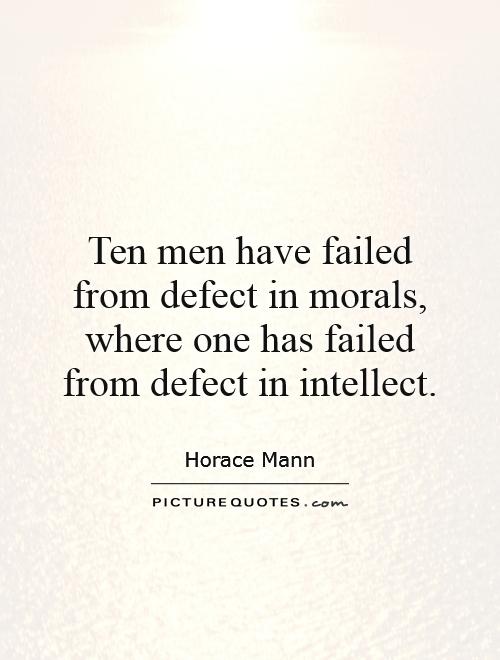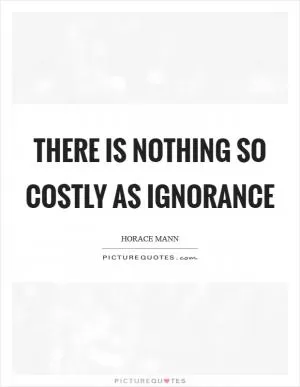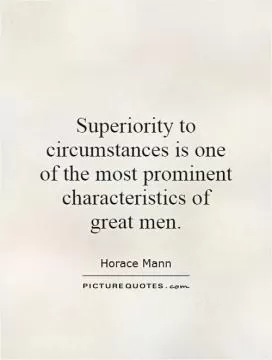Ten men have failed from defect in morals, where one has failed from defect in intellect

Ten men have failed from defect in morals, where one has failed from defect in intellect
Horace Mann, often referred to as the father of American public education, was a firm believer in the power of education to shape the moral character of individuals. He understood that education was not just about imparting knowledge and skills, but also about instilling values and virtues that would guide individuals in their personal and professional lives. Mann's famous quote, "Ten men have failed from defect in morals, where one has failed from defect in intellect," encapsulates his belief that moral character is of utmost importance in determining one's success and happiness in life.Mann recognized that a person could be highly intelligent and knowledgeable, but if they lacked moral integrity and ethical principles, they would ultimately fail in their endeavors. He understood that intellect alone was not enough to guarantee success, and that a strong moral compass was essential for navigating the complexities of life. Mann believed that education should not only focus on academic subjects, but also on character development and the cultivation of virtues such as honesty, integrity, compassion, and empathy.
Mann's emphasis on the importance of morals in education was revolutionary at a time when the focus was primarily on academic achievement and intellectual prowess. He believed that a well-rounded education should encompass not only the mind, but also the heart and soul of the individual. Mann advocated for the inclusion of moral and ethical teachings in the curriculum, and for the promotion of values such as kindness, respect, and responsibility.
Mann's vision for education was not just about preparing students for successful careers, but also about shaping them into good citizens and moral human beings. He believed that a strong moral foundation was essential for building a just and equitable society, and that education had a crucial role to play in fostering moral development. Mann's quote serves as a reminder of the importance of morals in education, and the enduring legacy of his belief in the power of education to shape the character of individuals and society as a whole.












 Friendship Quotes
Friendship Quotes Love Quotes
Love Quotes Life Quotes
Life Quotes Funny Quotes
Funny Quotes Motivational Quotes
Motivational Quotes Inspirational Quotes
Inspirational Quotes